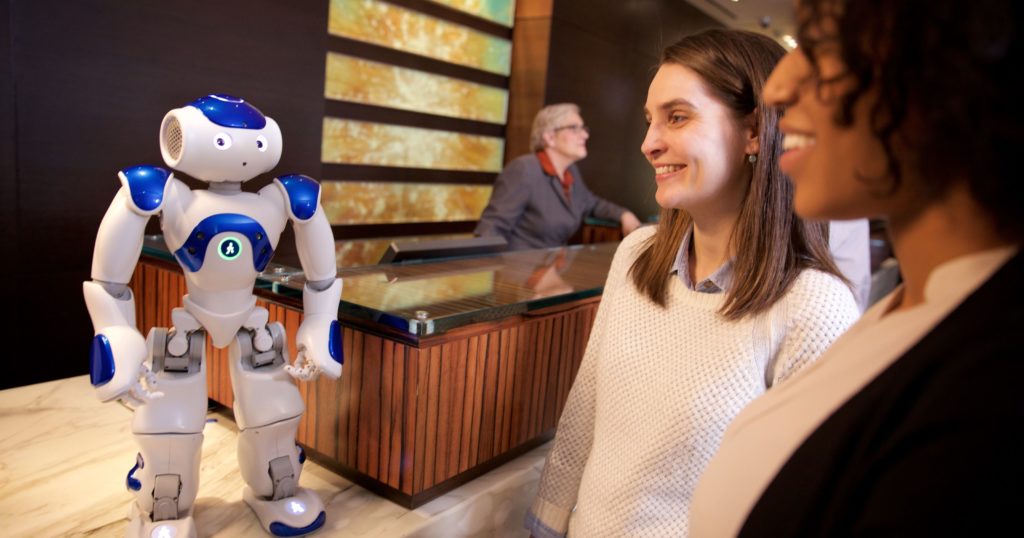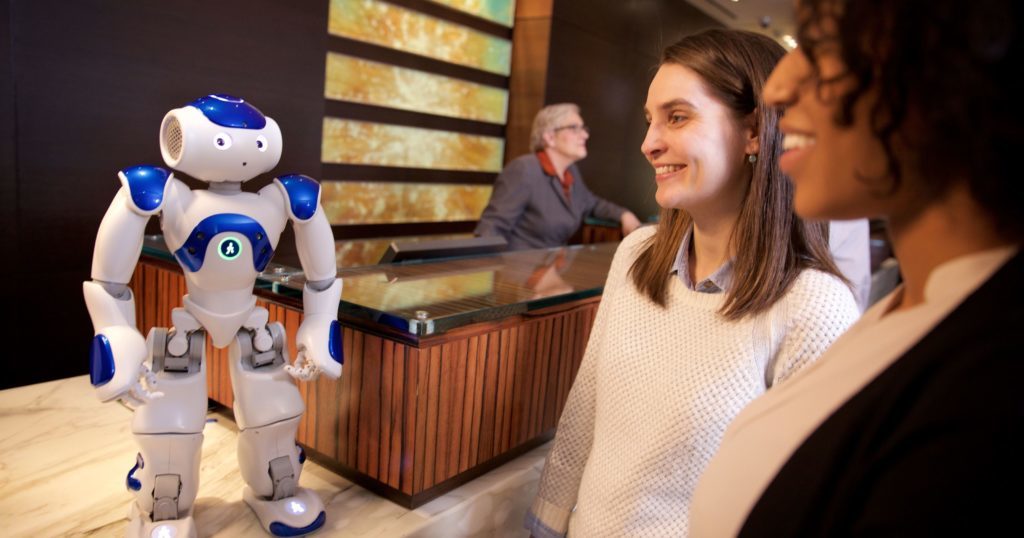Hotels are increasingly turning to smart solutions. Dedicated mobile applications allow booking a room or even manage its functions. With just a phone, you can choose the time of your stay, book parking space and order the services you need. Universal power points for various plugs, docking stations for tablets and smartphones, USB and HDMI ports at the desk are now a standard for rooms.
I invite you to read the article where I present some of the most interesting smart solutions which can be used by hotel guests.
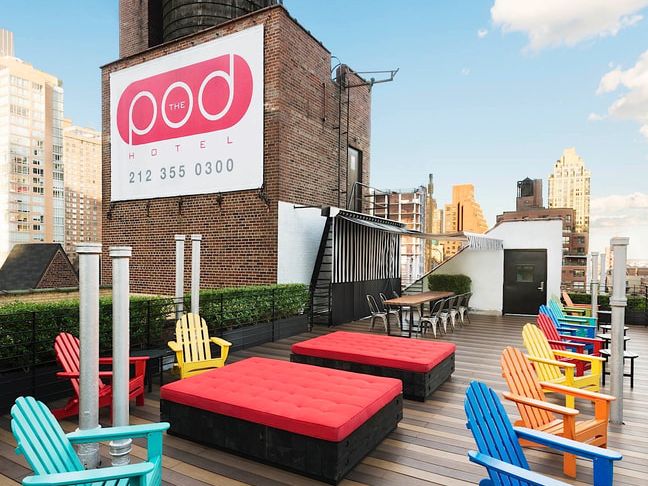
source: thepodhotel.com
Which smart solutions are currently being introduced in hotels?
I heard about digital displays on walls of rooms, where you can view pictures, about showers which remember preferred water temperature or mirrors displaying videos which help in yoga sessions. In modern hotels, it is possible to open doors with your own smartphone.
Systems in modern hotels remember your favourite tv show – it will be turned on just after you enter the room. The system responds to questions on tourist attractions, turns on your favourite music or sets appropriate temperature. Thanks to mobile applications, as a hotel guest, you can customise room functionalities to your needs – you can set curtains or audio system as required. Thanks to infrared sensors, room service will know if you are in the room.
Space which brings people together
Hotel owners in smart cities take care about arranging a place where guests could spend their spare time together, work, eat and integrate.
In the Upper House in Hong Kong, customers are given an Ipod Touch with games, music and information on the neighbourhood. The Pod Hotel New York went one step further – it created a social network for guests. They can share their reflections, chat and make new acquaintances.
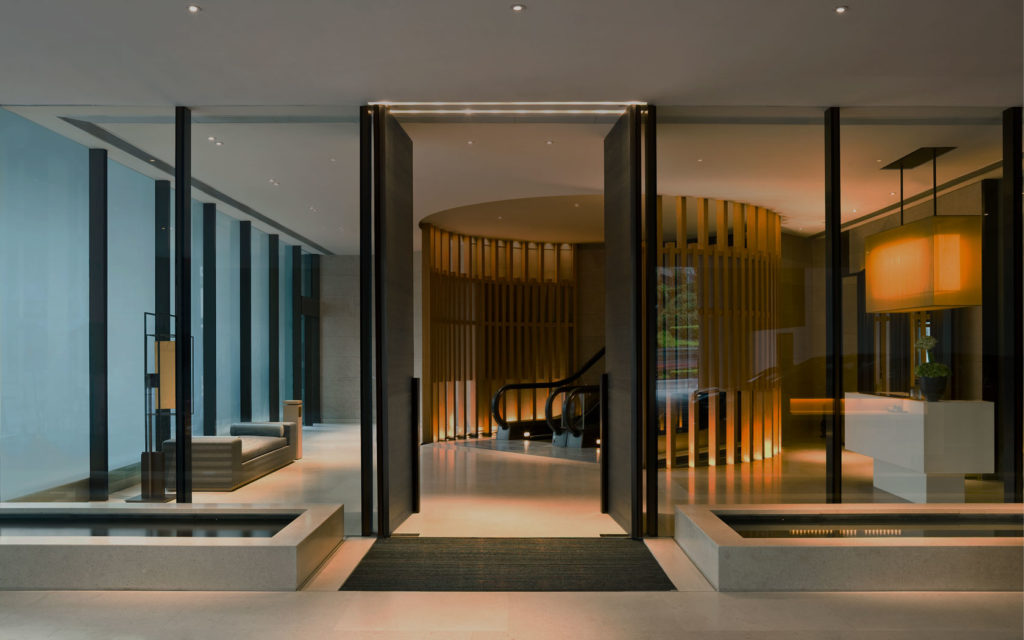
source: upperhouse.com
Modern hotel brands care a lot about their image. They communicate support for human rights in the Internet or are involved in charity activities. An example of this is Hilton which awards its regular guests with loyalty points, which in turn can be exchanged with financial support to various non-governmental organisations. Clarion Hotel in Oslo regularly supports UNICEF. Eaton Smart hotel in Hong Kong donates almost half of its income for charitable purposes.

Pro-environmental solutions
In smart hotel we encounter eco-friendly cleaning materials, energy-saving bulbs, waste separation containers and beauty products made of natural ingredients. An American 1 Hotel is furnished exclusively with recycled furniture. Orbis focused on limiting food waste, providing charging stations for electric vehicles and funding of afforestation. One Aldwych in London utilises vacuum drainage, energy-saving LED lamps, chlorinated swimming pool and many other solutions.
Hotel QO Amsterdam grows herbs and vegetables in its own greenhouse situated on the roof. Plants are watered by collected rainwater. Organic waste is later used for heating.
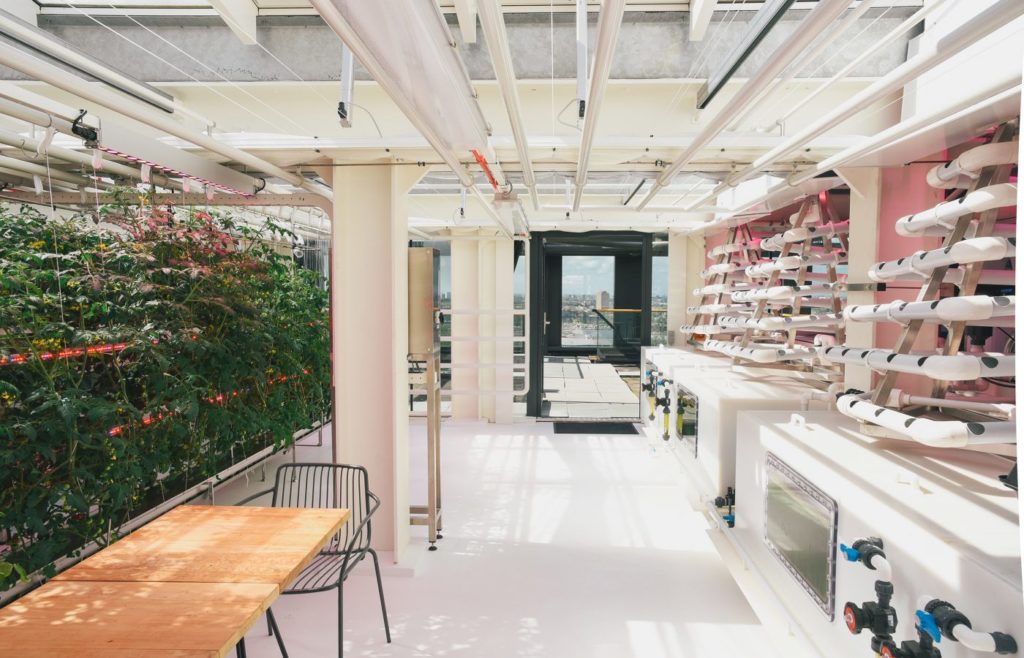
source: popupcity.net
The Rosemont Hotel & Residences in Dubai will be the world’s first hotel with own rainforest – with waterfalls, streams and beach. A sprinkler system will be installed above the entire structure.
Artificial intelligence in hotels
The tasks related to customer service can be carried out by artificial intelligence. Robots functioning as porters are increasingly frequent. It is worth mentioning the Henn hotel in Tokyo, which is completely staffed by humanoids. Also, in Opole (Poland) you can meet a robot at the reception desk.
A machine called Connie in the Hilton hotel located in McLean constantly refines human speech and adjusts its abilities to meet individual needs of guests. It recommends restaurants based on internet user opinions and informs about the incoming events in vicinity. A porter-robot developed by LG can deliver luggage to rooms or take it back to the car.

źródło: usatoday.com
Big data / Internet of Things
Customer data, collected via the Internet, allow hotel managers to provide better service.
Beacons are small transmitters of radio signal. They provide information when the guests arrive, leave their rooms or go to the restaurant, gym or SPA. The data are crucial for business analysis. This leads to better decisions concerning allocation of staff or future renovations and a more efficient check-in procedure.
Smart solutions in Polish hotels
Human interaction is limited to minimum in Puro Hotel in Wrocław. In the lobby, there is a reception table with touch panels. Here guests can check-in on their own. Each guest has access to a projector and coffee machines, which are activated using a hotel card.
In Blow Up Hall in Poznań hotel cards were replaced by iPhones. In Świnoujście you can find a 5-star Radisson Blu hotel which was constructed in accordance with guidelines of a green LEED certificate.
Sound Garden Hotel in Warsaw offers self-service checking in – you just need to enter your booking number and confirm the data. Checking out is just leaving the room. You can leave the key in an elevator or room.
Hotel Rosevia Resort in the Polish Coastal Landscape Park (Nadmorski Park Krajobrazowy) was built in a manner which makes it possible to benefit from the fruits of nature. The system can independently and simultaneously manage both all 82 apartments and the entire facility. On the day of arrival of guests, appropriate temperature is set in booked apartments. On the other hand, heating is limited or turned off in unused rooms. This significantly reduces running costs of the hotel. Another smart solution are weather stations which provide information on current and forecasted weather. Thanks to that, conditions inside the building can be adjusted to the conditions outside.
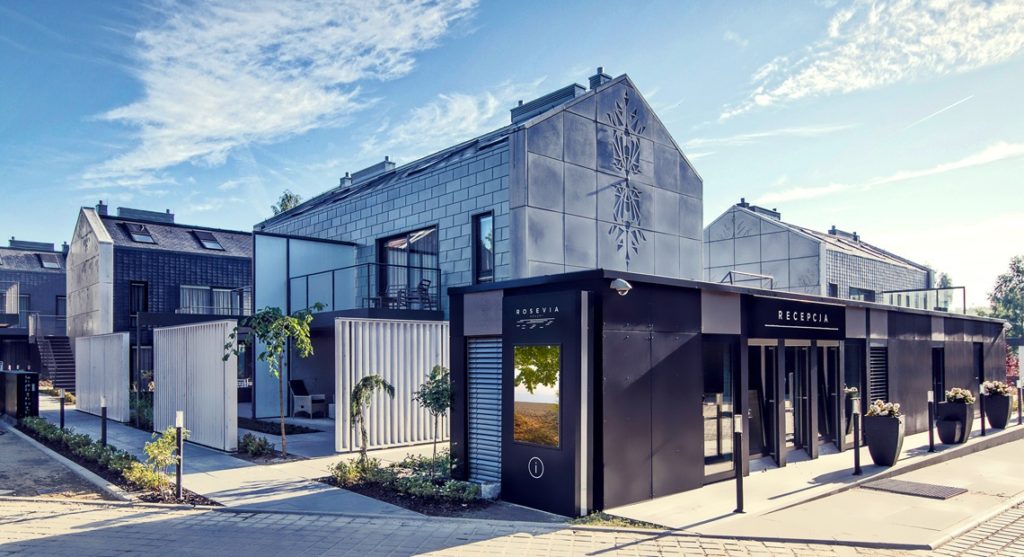
źródło: travelist.pl
I think that in the future smart solutions will be common. After all, they are a great convenience both for guests and hotel owners. I am convinced that modern technologies will become a standard both in low-budget and luxury facilities. I am impatiently looking forward to see new green solutions and utilisation of artificial intelligence in many Polish hotels.
